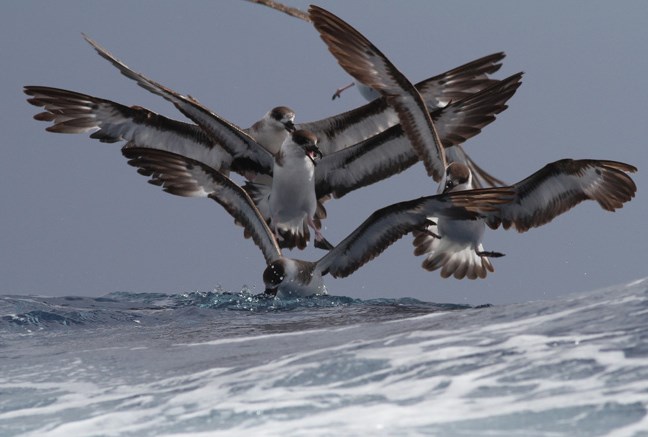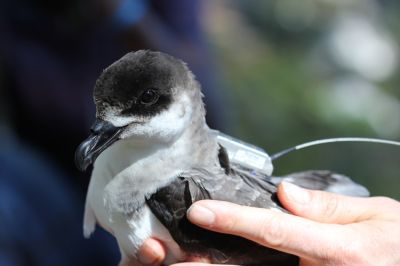
The black-capped petrel, a prolific nocturnal seafarer, is fighting extinction on several manmade fronts and could even use some protection from itself. A big help is some techy advances. A huge enemy is time. That fight may be settled in court, a St. Petersburg conservation attorney said.
On Monday the U.S. Fish and Wildlife Service received notice that a lawsuit was in the works because of the agency’s failure to act on behalf of the black-capped petrel.
“This [seabird] urgently needs protection from imminent plans to open its fishing grounds to oil drilling,” said Jacki Lopez, Florida director in St. Pete for the Center for Biological Diversity, which is preparing the lawsuit.
The black-capped petrel also has a “deadly attraction to oily surfaces, so an oil spill in the petrel’s habitat could drive it to extinction,” Lopez said.
 The FWS was petitioned in 2011 to list the black-capped petrel under the Endangered Species Act. In June 2012 a 90-day ruling acknowledged that protection was likely warranted. At the time, the FWS said the black-capped petrel “faces many potential threats to its continued existence, including … offshore oil exploration and development.”
The FWS was petitioned in 2011 to list the black-capped petrel under the Endangered Species Act. In June 2012 a 90-day ruling acknowledged that protection was likely warranted. At the time, the FWS said the black-capped petrel “faces many potential threats to its continued existence, including … offshore oil exploration and development.”
The deadline for a final ruling was September 2012.
“When it comes to protecting endangered species like [the black-capped petrel], delay can mean death,” Lopez said in a statement.
The FWS recently acted to protect the red knot, an Atlantic Coast shorebird, after nearly 10 years of pressure by conservationists, including the CBD.
The American Bird Conservancy tagged three petrel in 2013 with solar-powered tracking devices in the Dominican Republic. For months, a satellite system offered daily online peeks into a dazzling flight path. One of the petrel was over Colombian waters in April 2014, near Melbourne in August, and far off New Jersey in October.
Similar mapping and conservation efforts are under development by the ABC's Atlantic Seabirds project, including one for the brown pelican.
The mid-Atlantic is a worry for advocates of the black-capped petrel partly because of the bird's nasty diet. The FWS said in its preliminary report that "pollution, bioaccumulation of heavy metals, and oil spills" has elevated black-capped petrel's mercury concentration roughly nine times higher than similar seabirds. Federal officials, meanwhile, are reviewing 10 applications for oil and gas exploration, Lopez said.
In a letter to federal wildlife stewards, “Protection under the Endangered Species Act is the best way to address these threats [and] ensure the population does not go extinct,” the CBD said.
» Photos: Top, via Surfbirds.org (Nate Dias); above via American Bird Conservancy.
Outside
Bitcoin mining emissions in China will hit 130 million tonnes by 2024 https://t.co/w6He7so8N2 pic.twitter.com/qYUDtBdeRK
— New Scientist (@newscientist) April 9, 2021
The Gunk Report
For the Blue-Green Algal Bloom Weekly Update from the Florida Department of Environmental Protection, tap here. For DEP's Algal Bloom Sampling Map, tap here.
What, me worry?
» "PLAYING WITH SHARKS," which recently premiered at the Sundance Film Festival, documents diving legend Valerie Taylor.